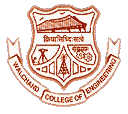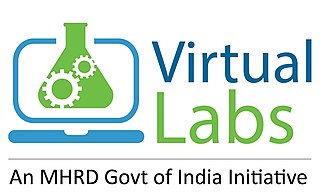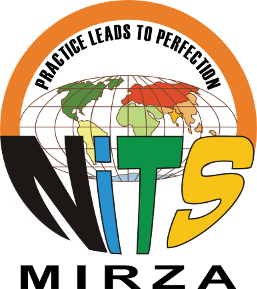
Virtual Network Computing (VNC) is a graphical desktop-sharing system that uses the Remote Frame Buffer protocol (RFB) to remotely control another computer. It transmits the keyboard and mouse input from one computer to another, relaying the graphical-screen updates, over a network.
Moodle is a free and open-source learning management system written in PHP and distributed under the GNU General Public License. Moodle is used for blended learning, distance education, flipped classroom and other online learning projects in schools, universities, workplaces and other sectors.

Parental controls are features which may be included in digital television services, computers and video games, mobile devices and software that allow parents to restrict the access of content to their children. These controls were created to assist parents in their ability to restrict certain content viewable by their children. This may be content they deem inappropriate for their age, maturity level or feel is aimed more at an adult audience. Parental controls fall into roughly four categories: content filters, which limit access to age inappropriate content; usage controls, which constrain the usage of these devices such as placing time-limits on usage or forbidding certain types of usage; computer usage management tools, which enforces the use of certain software; and monitoring, which can track location and activity when using the devices.
Portal Resources for Indiana Science and Mathematics(PRISM) is a free website originally designed for Indiana middle school math, science, and technology teachers. It links Indiana Academic Standards for middle school science, technology, pre-engineering, and math (STEM fields) to appropriate, teacher-reviewed online learning activities. Users may either browse materials by academic standard or use the keyword search engine to find appropriate sites.
A home server is a computing server located in a private computing residence providing services to other devices inside or outside the household through a home network or the Internet. Such services may include file and printer serving, media center serving, home automation control, web serving, web caching, file sharing and synchronization, video surveillance and digital video recorder, calendar and contact sharing and synchronization, account authentication, and backup services. In the recent times, it has become very common to run literally hundreds of applications as containers, isolated from the host operating system.

A language laboratory is a dedicated space for foreign language learning where students access audio or audio-visual materials. They allow a teacher to listen to and manage student audio, which is delivered to individual students through headsets or in isolated sound booths. Language labs were common in schools and universities in the United States in the two decades following World War II. They have now largely been replaced by self access language learning centers, which may be called language labs.

nanoHUB.org is a science and engineering gateway comprising community-contributed resources and geared toward education, professional networking, and interactive simulation tools for nanotechnology. Funded by the United States National Science Foundation (NSF), it is a product of the Network for Computational Nanotechnology (NCN). NCN supports research efforts in nanoelectronics; nanomaterials; nanoelectromechanical systems (NEMS); nanofluidics; nanomedicine, nanobiology; and nanophotonics.
Web-based simulation (WBS) is the invocation of computer simulation services over the World Wide Web, specifically through a web browser. Increasingly, the web is being looked upon as an environment for providing modeling and simulation applications, and as such, is an emerging area of investigation within the simulation community.

Veyon is a free and open source software for monitoring and controlling computers across multiple platforms. Veyon supports users in teaching in digital learning environments, performing virtual trainings or giving remote support.
A.nnotate is a web service for storing and annotating documents. Documents are either uploaded by the user or fetched from a web address supplied by the user. Uploads are accepted as PDF, Microsoft Word, office formats supported by OpenOffice and common image formats. When a URL of a web page is entered, the service makes a local copy of the HTML and stylesheet. The service offers a browser bookmarklet to facilitate making snapshots of web pages.

A Virtual Learning Environment (VLE) is a system specifically designed to facilitate the management of educational courses by teachers for their students. It predominantly relies on computer hardware and software, enabling distance learning. In North America, this concept is commonly denoted as a "Learning Management System" (LMS).
Labshare consortium is a laboratory sharing initiative established by the Federal Commonwealth of Australia Government's Department of Education, Employment and Workplace Relations by their Diversity and Structural Adjustment Fund awarded the five Australian Technology Network Universities: University of South Australia, Royal Melbourne Institute of Technology, University of Technology Sydney, Curtin University of Technology and Queensland University of Technology, which supported the national sharing of remote labs as a consortium of Australian Technology Network Universities who would share remote laboratories.
A remote experiment is a real experiment with real laboratory instruments and equipment that can be controlled by a computer through the internet. One or more remote experiments are accessible in remote laboratory.

Walchand College of Engineering is a college in the city of Sangli, Maharashtra, India. The WCE campus is situated on nearly 90 acres of land in Vishrambag, roughly midway between the twin cities of Sangli and Miraj.

Virtual Labs is a project initiated by the Ministry of Education, Government of India, under the National Mission on Education through Information and Communication Technology. The project aims to provide remote access to Laboratories in various disciplines of Science and Engineering for students at all levels from undergraduate to research.
Reach-In formerly Apriori Control is a technology company that "provides real-time physical interactions over the internet." It manufactures devices and webcams that can be controlled remotely. A popular product is iPet Companion, which allows users to view and interact with pets.

NETES Institute of Technology & Science Mirza is a private engineering college which started in 2009 and is located in Mirza, 6 km (3.7 mi) from Lokapriya Gopinath Bordoloi International Airport, Guwahati, Assam, India. The college is approved by the All India Council for Technical Education.
Browser isolation is a cybersecurity model which aims to physically isolate an internet user's browsing activity away from their local networks and infrastructure. Browser isolation technologies approach this model in different ways, but they all seek to achieve the same goal, effective isolation of the web browser and a user's browsing activity as a method of securing web browsers from browser-based security exploits, as well as web-borne threats such as ransomware and other malware. When a browser isolation technology is delivered to its customers as a cloud hosted service, this is known as remote browser isolation (RBI), a model which enables organizations to deploy a browser isolation solution to their users without managing the associated server infrastructure. There are also client side approaches to browser isolation, based on client-side hypervisors, which do not depend on servers in order to isolate their users browsing activity and the associated risks, instead the activity is virtually isolated on the local host machine. Client-side solutions break the security through physical isolation model, but they do allow the user to avoid the server overhead costs associated with remote browser isolation solutions.
E-engineering, is a concept that combines distance learning and remote laboratories.

TIMS, or Telecommunication Instructional Modeling System, is an electronic device invented by Tim Hooper and developed by Australian engineering company Emona Instruments that is used as a telecommunications trainer in educational settings and universities.









